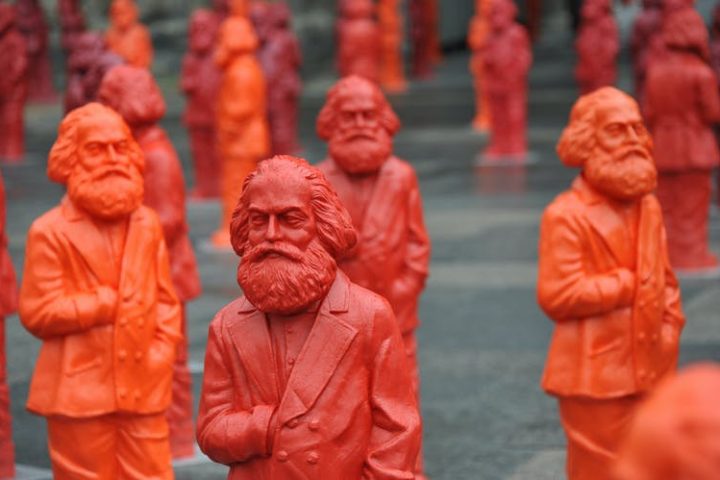The way the world of the wise and the scientists had been built during early modernity still bore traces of a common shared linguistic and epistemological groundings of the middle age. The encouragement to support Copernicus (Voelkel, 1999, p. 40) that Kepler addressed at Galileo was reminiscent of the still-existent Ecumene of the European Christendom when scientists and learned persons communicated regularly about the state of knowledge. Latin as a common scientific language, Christianity, and most of their theoretical foundations were similar and the ethnic boundaries made little impact in the goals and the methods they shared. Neither Modernity in its beginnings, nor the continuous religious war that broke loose during the dreaded XVII century would destroy this communication. If anything, the expansion of colonial empires and contacts with other worlds only made the networks more all-encompassing. This republic of letters reached during the enlightenment its maximum theoretical expansion before the modern world unleashed all its inner potentialities.
And in fact, nothing lasted beyond the XIX century without a deep transformation. When the solid really started to vanish faster than ever and capital, a new social relationship became universalized through the sheer force of industry and empires. With the expansion of capital and the growing fractioning of academic knowledge, science undoubtedly grew, but the final split of the political world into modern states, which achieved its final form during the xx century, only confirmed the fact of the obsolescence of the former shared academic communities and spaces. This happened simultaneously to the constitution of modern universities, with all the exclusive departmental distributions and disciplinary divisions.
In the aftermath of the Cold War, the world witnessed the unlimited expansion of political forms that accommodated capital the best as the main metabolic process of all social fabric. The universalization of capital, which has been relentless, ever since its intensive beginnings in the nineteenth century, has been the significant trait of our age, haunted by the prospects of human potentialities and the sad realization of delayed solutions. Whether this expansion was violent or not, was ultimately irrelevant, because the blood left behind the police actions of the winning geopolitical bloc made it clear that the end of history (albeit temporary) was more of an indictment than a thoughtful invitation. This process has affected the intricate spaces of Academia and the main centers of knowledge production worldwide in an even more subtle manner. The transformations there have had a deep impact and have changed forever the way science and knowledge are produced, portrayed, and transmitted.
During the decade of 1990, the first stages of the last wave of globalization started with the full support of liberal theories and states. As a response to this planetary change, the European universities led the charge against the old models ruling their institutions and their connections with this new emerging world, and as a response to the newest globalizing wave, the main constituents of the Union agreed in the Sorbonne in 1998, and definitely instituted the following year in Bologna, the foundations of a new reform of all the European universities, that would transform them into competitive institutions, sharing a common strategical transnational space of free circulation and a shared regulatory status (Kooij, 2015, pp. 51-52).
The Bologna process, as well as the analogous regionalization systems that have replicated its initial intention, have constituted, ever since its inception, the academic equivalents of Free Trade Areas within the educational world. Instead of lumber or hardware, this specific trade in information societies is focused on people and ideas (both represent money transactions, obviously), which represent the lifeblood of the circulation of capital in this stage, because they perform a vital role within economies heavily oriented to services during the last techno-scientific revolution. Notwithstanding, just like what happened to countries that ventured into free trade agreements by the same time, the responsibility of academic regulation, that had laid theretofore on the shoulders of the nation-state (and the mechanisms of control of its citizenry), was transferred to institutions and agreements that emerged of the transnational sphere of exchange and competition in tertiary education and, consequently, of all the new categories through which their performances are measured. All of this denoted the slow but unstoppable shaping of a globalized educational system, although ridden by the contradiction of being still ruled by fierce competition.
There is barely any doubt that the tertiary systems of education still respond to the political will of the states they are placed in. Nonetheless, this new situation confers great power to the institutions in charge of making university rankings and classifying institutions, and these instances themselves occupy a regulatory position which is unprecedented for any global institution of this kind. Since the publication of the first university ranking by the Jiang Tong University of Shanghai at the beginning of the XXI century (Zajda & Rust, 2016, p. 40), the growing trend amongst universities has been to enforce themselves the new standards in order to achieve the long-desired status of a world-class university.
The notions of excellence have also accompanied the functioning of rankings since its very beginning (Rostan & Vaira, 2011, p. 8). Besides its great burden of elitism and the overt preference for well-established institutions, the rankings have also represented an increasing pressure on the universities, in their quest for ensuring better positions and, therefore, better access to marketing and financing, or failing that, better appeal to foreign students. However, a wonderful conundrum remains unsolved, not even the universities themselves have a clear idea of what constitute the world-class university they aim to become (Altbach, 2003, p. 5). It’s clear that connectivity to the world, being a world leading institution in relevant research areas (mostly natural sciences or technologies) and a top publishing center are requisites for most of the variations of excellence that are being held worldwide. If excellence as such remains an elusive category, the arbitrariness of the competition will still be contested for a time until better and stricter methods of calculating the value of a university are put into action. But this process in itself reveals the emptiness which characterizes the most conspicuous model of circulation of capital, which are essentially a general form with no real content, except for the movement of commodity itself.
In truth, the old reality of the republic of letters, which had many fierce defenders during the enlightenment, dissolved, but only temporarily, to be reborn as a universal network of academic knowledge at the service of capital circulation. This, of course, has deeper implications beyond the rhetoric that it seems to imply. If science was deeply affected by the emergence of academic disciplines during the xix century, and it contributed to the construction of the modern scientific paradigm, which could be the consequences of transforming academic institutions into agents of a financial competition?
This is a late question to an already aged problem, since this real transformation has been happening for twenty years. Nonetheless, only now, with the benefit of hindsight we can start considering the positive outcomes of the academic networks in the globalized world, while keeping in mind the consequences of the absolute reconstitution of knowledge, science and its social impact in the last years. And none of the structural changes in the main centers producing knowledge have been alien to these phenomena. Covid-19, the anti-scientific conspiracies and the targeting of universities by political stances are just the beginning of a widespread suspicion of the works of universities, which have lost, in the blink of an eye, the social prestige that almost no other modern institution maintained for a long time.
However, the conditions that have generated the demise of the traditional and accepted notion of truth, with all its consequences, have been also consubstantial to the extension of social media and the ever-growing financial competition between scientific institutions. The public acknowledgment of universities as a business has eroded, even if in misguided way, one of the basic tenets of modernity, the purity of knowledge, which has always been a contentious top. The geopolitical entanglement of the century which is barely beginning could unfold even more this chapter of the last globalizing wave, but it seems unlikely that the boundaries between the national and the global, which have been effectively blurred, will return to the former setting without resistance.
References
Altbach, P. (2003). The costs and Benefits of World-Class Universities. International Higher Education(33).
Kooij, Y. (2015). European higher education policy and the social dimension. A comparative study of the Bologna Process. London: Palgrave Macmillan.
Rostan, M., & Vaira, M. (2011). Questioning excellence in Higher education: an introduction. In M. Rostan & M. Vaira (Eds.), Questioning Excellence in Higher Education. Policies, experiences and challenges in national and comparative perspective. Rotterdam: Sense Publishers.
Voelkel, J. (1999). Johannes Kepler and the New Astronomy. New York: Oxford University Press.
Zajda, J., & Rust, V. (2016). Globalisation and Higher education reforms: Springer.




